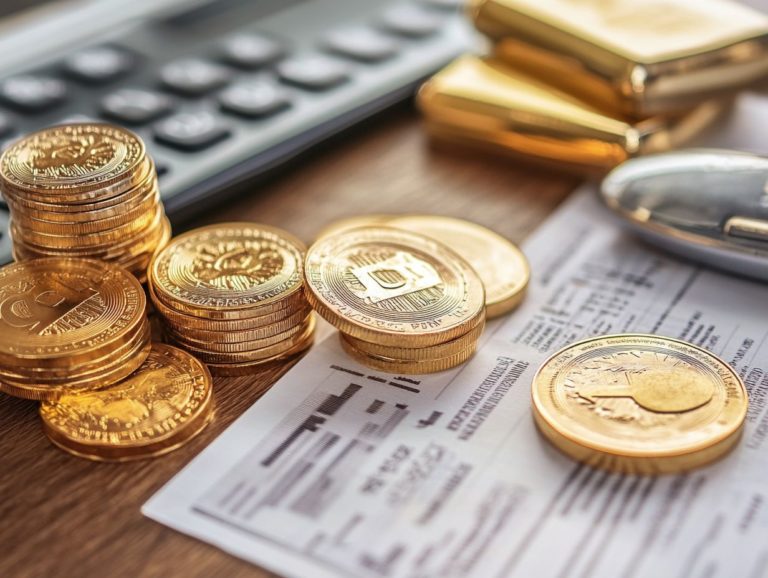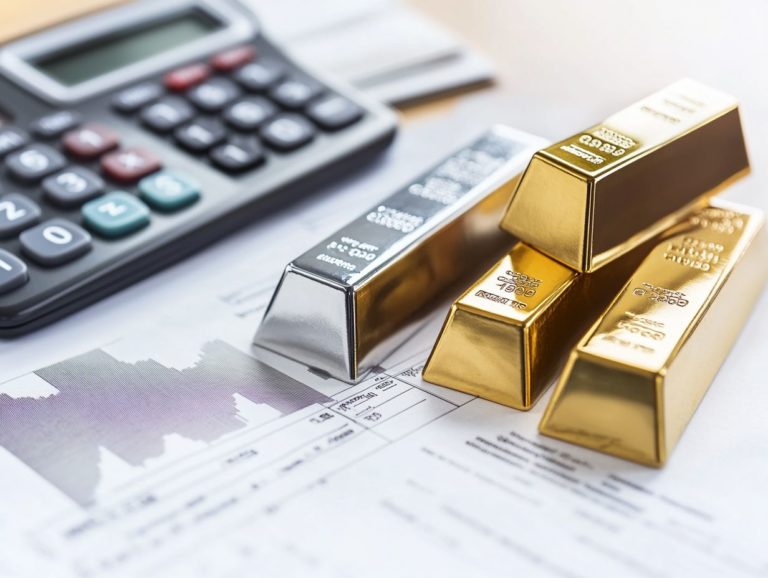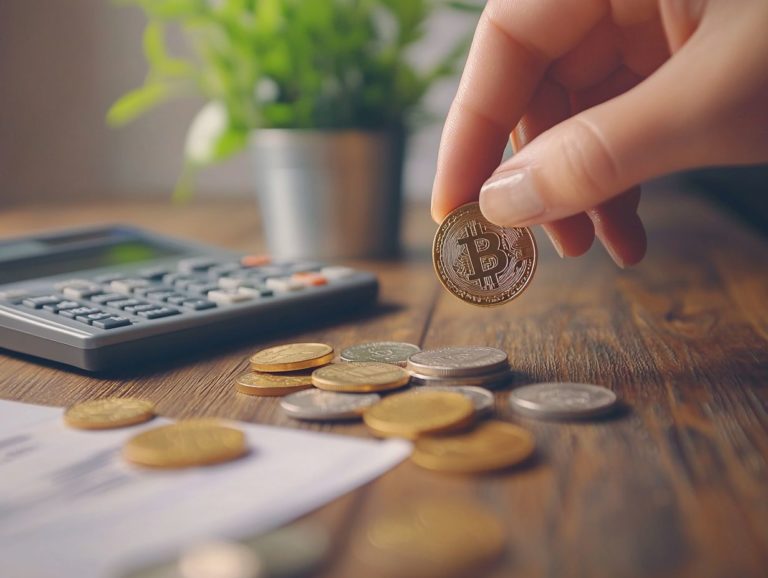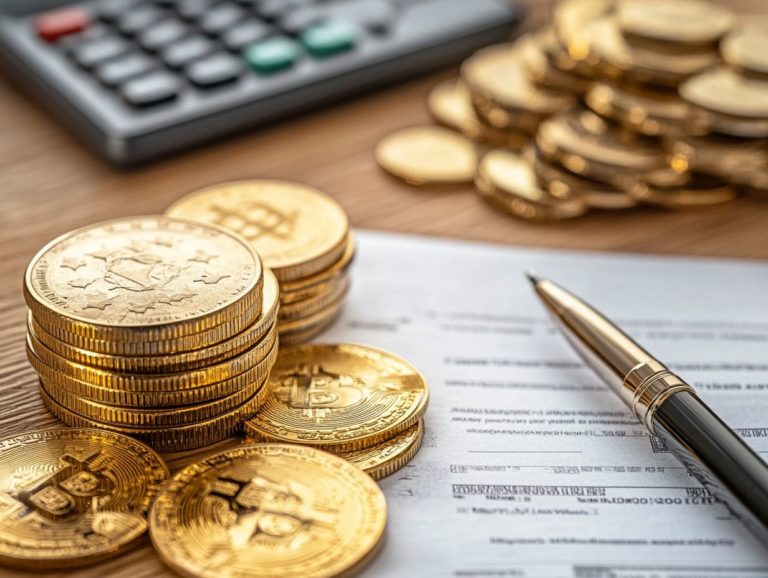Tax Implications of Precious Metals in Charitable Giving
In today s diverse philanthropic landscape, charitable giving has evolved significantly. It now embraces new avenues such as the donation of precious metals.
Let s dive into the exciting world of donating gold, silver, and other valuable metals. This article highlights their benefits, tax implications, and regulatory considerations.
Whether you re a seasoned donor or contemplating this distinctive form of giving for the first time, you ll uncover essential insights on tax deductions, IRS guidelines, and how charities can adeptly manage these donations.
Explore the advantages and alternative options for incorporating precious metals into your charitable endeavors.
Contents
- Key Takeaways:
- Overview of Charitable Giving with Precious Metals
- Tax Benefits of Donating Precious Metals
- Essential Rules for Donating Precious Metals
- Considerations for Charities Accepting Precious Metal Donations
- Alternative Options for Charitable Giving with Precious Metals
- Frequently Asked Questions
- What are the tax implications of donating precious metals to charity?
- Are there any limits to the tax deduction for donating precious metals to charity?
- Can I donate precious metals directly to a charity or do I need to go through a broker?
- Are there any tax reporting requirements for donating precious metals to charity?
- What happens if the charity sells the precious metals I donated?
- Can I donate precious metals from my IRA to charity tax-free?
Key Takeaways:
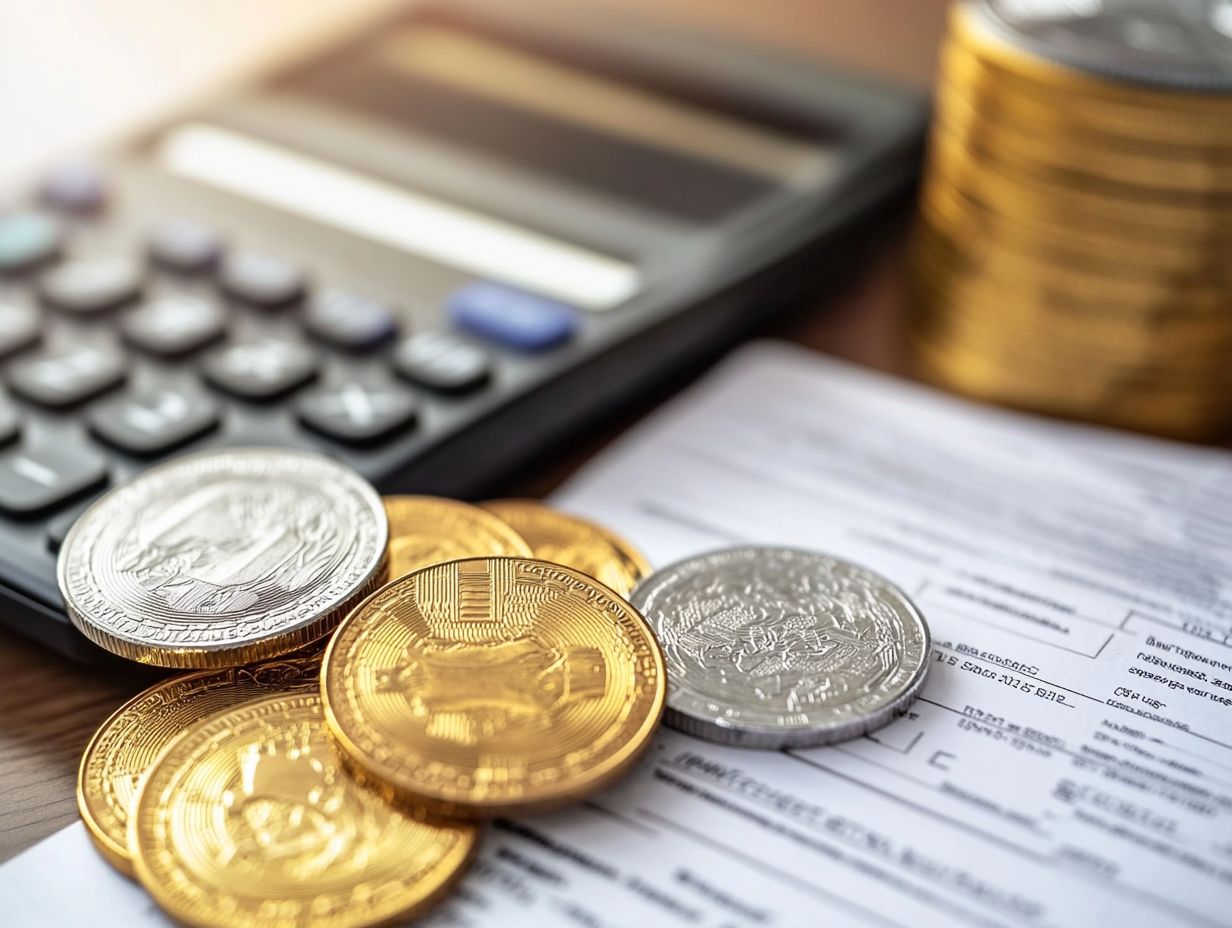
- Donating precious metals to charities can have significant tax benefits, including potential deductions and avoiding capital gains taxes.
- It is important to follow IRS rules to ensure you receive all tax benefits when donating precious metals.
- Charities should consider how to handle and value precious metal donations while exploring alternative options for accepting these gifts.
Overview of Charitable Giving with Precious Metals
Charitable giving through precious metals, such as physical gold and silver investments, presents a unique opportunity to support your favorite causes. It also allows you to weigh the financial benefits of your generosity.
This approach not only bolsters the charities you care about but also opens the door to potential tax advantages under IRS regulations. This is especially true concerning capital gains tax and the tax responsibilities related to the sale or donation of assets like gold bullion and coins.
Understanding the details of charitable contributions in this context is vital for making smart choices about your donations.
What is Charitable Giving with Precious Metals?
Charitable giving with precious metals means donating tangible assets like gold and silver coins or bars to nonprofit organizations. This allows you to support causes that resonate with you while potentially enjoying tax advantages according to IRS rules.
This type of giving enables you to contribute items that possess intrinsic value. Gold coins and bullion are well-known for their lasting worth and liquidity. By choosing to donate these precious metals, you not only assist your selected charities but also take advantage of the tax implications of investing in precious metals ETFs and leverage various IRS guidelines surrounding such contributions.
For instance, while cash donations typically provide an immediate tax deduction based on the amount given, contributions of precious metals are often evaluated differently, depending on their fair market value. Understanding the tax implications of precious metals in business ventures enables you to maximize both your philanthropic impact and potential tax benefits.
Tax Benefits of Donating Precious Metals
Donating precious metals can offer you remarkable tax benefits. Under IRS regulations, you can deduct the fair market value of your contributions from your taxable income. This not only lowers your overall tax liabilities but also allows you to make a meaningful impact by supporting charitable causes.
How Donations of Precious Metals are Taxed
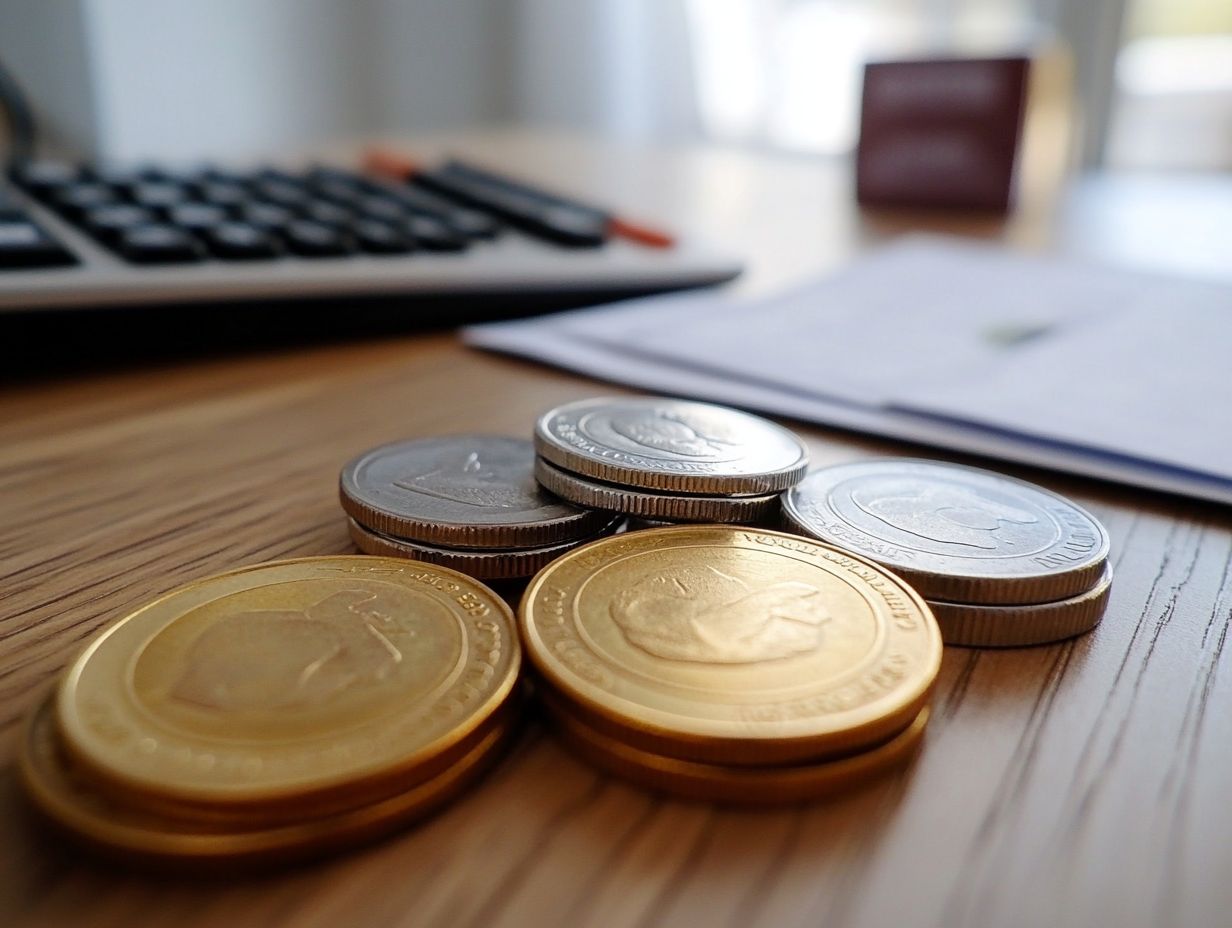
Donations of precious metals typically escape capital gains tax, but it is crucial to navigate the IRS regulations surrounding taxable events and their implications for your overall tax liabilities.
When you choose to donate precious metals, understand that the IRS has set specific criteria for qualifying as a charitable contribution. One key requirement is that your donation must go to a registered 501(c)(3) organization to be eligible for a tax deduction. Additionally, you should be aware of the tax implications of selling silver investments. If you’ve held these assets for more than a year, you can deduct their fair market value on the donation date, amplifying the tax advantages.
However, be aware that if the recipient organization decides to sell the donated metals later, capital gains tax could still apply based on appreciation that occurred before the sale. For more insight, understanding gold’s tax implications could potentially lead to tax liabilities for the organization, so considering the broader implications of your generous contribution is wise.
Potential Tax Deductions
Donating precious metals may qualify you for significant tax deductions. These deductions can lower your taxable income and help you meet IRS charitable contribution requirements.
To accurately calculate these deductions, it’s crucial to determine the fair market value on the date of your donation. Fair market value refers to the price that an asset would sell for in the current market. This usually involves getting an appraisal from a qualified expert, which is an expert assessment of the asset’s value. Additionally, understanding the tax implications of precious metals in different states can be beneficial. Keep documentation on hand, such as a written acknowledgment from the charity and IRS Form 8283. This form is essential for detailing non-cash donations and ensuring compliance, especially if your contributions exceed $500.
Understanding market value isn’t just about tax benefits; it reflects the true worth of the assets you donate. This knowledge allows you to maximize your potential deductions, especially when considering tax planning for long-term precious metals holders.
Essential Rules for Donating Precious Metals
The process of donating precious metals is shaped by specific rules and regulations established by the IRS. These are designed to ensure tax compliance and accuracy in charitable contributions. Being well-informed about these requirements can significantly impact your philanthropic efforts and financial strategy.
IRS Guidelines and Requirements
IRS guidelines clearly outline the requirements for donating precious metals, detailing the necessary documentation and valuation assessments to ensure compliance with tax laws and charitable contribution standards.
If you’re considering making a charitable contribution, you must provide accurate appraisals of your precious metals. The IRS requires valuations to reflect fair market value at the time of donation. Meticulous record-keeping is crucial; maintain receipts and any relevant correspondence with both the charity and the appraiser to substantiate your donation on your tax returns. Additionally, be aware of the tax implications of selling precious metals to a dealer as this can affect your overall tax situation.
Neglecting these procedures can lead to significant penalties, including disallowed deductions, complicating your tax filing process and even triggering an audit. By adhering to these regulations, you ensure compliance and protect your financial interests while making generous contributions. Understanding the tax impact of precious metals in your financial plan can also be crucial for informed decision-making.
Considerations for Charities Accepting Precious Metal Donations
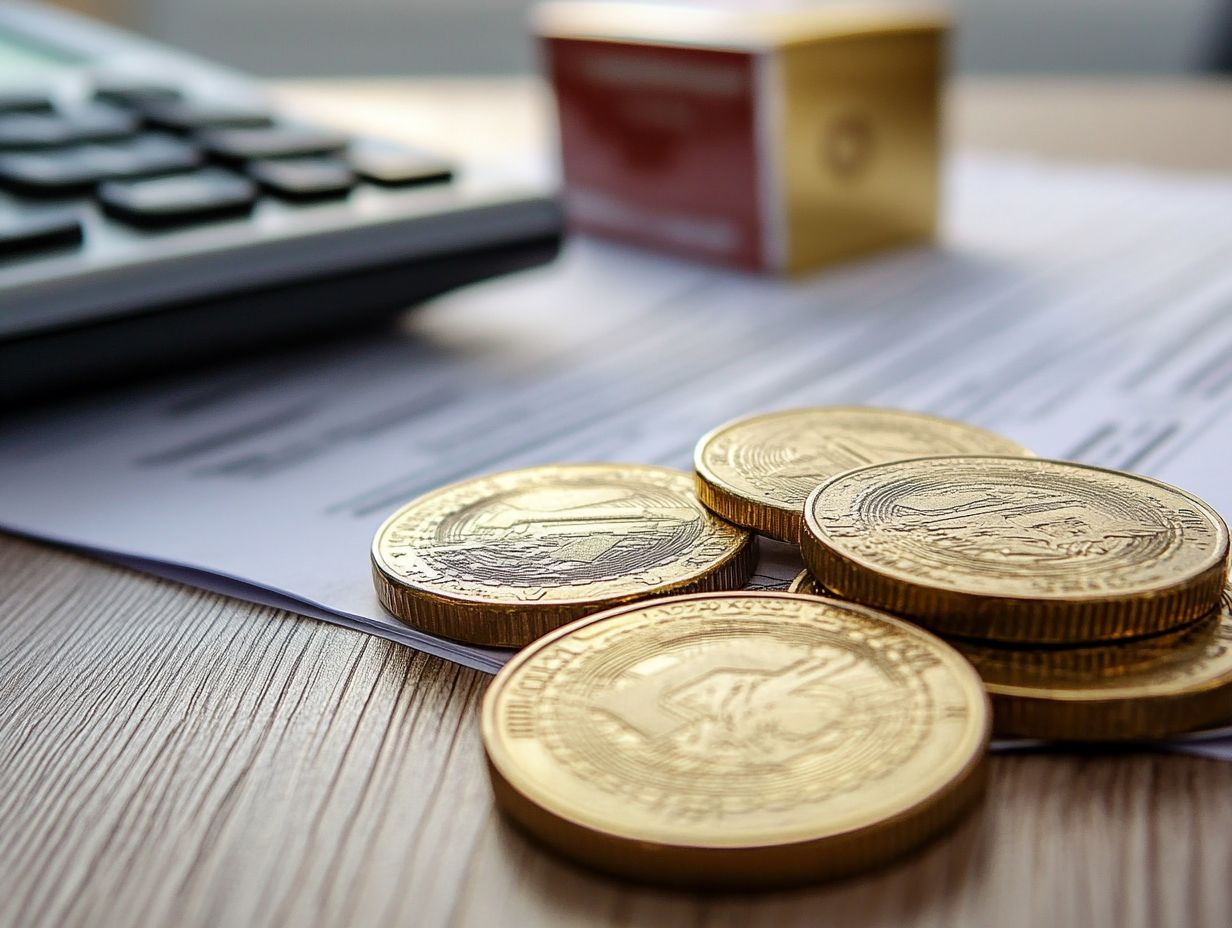
When considering the acceptance of donations in precious metals, several critical factors must be taken into account. It’s essential to know how to handle these contributions and accurately assess their value.
This not only affects their market worth but also has potential tax implications for both your charity and the donor. Navigating these aspects thoughtfully helps maximize the benefits of such donations.
Handling and Valuing Donations
Effectively managing and valuing donations of precious metals is essential for you as a charity. Ensure that you accurately assess market values and remain compliant with IRS tax regulations.
This requires adopting best practices, including thorough appraisal methodologies. Consider consulting with certified appraisers or using current market data to establish appropriate values. Additionally, it’s important to understand the tax consequences of buying precious metals abroad. Meticulous record-keeping is also crucial; maintain detailed documentation of the entire donation process, including receipts, donor information, and appraisal reports.
Understanding and complying with tax obligations is equally important. You need to know how to properly report these gifts on tax returns, ensuring that both your organization and the donor fulfill their legal responsibilities while maximizing the potential benefits from the donation. For more insights, consider understanding the role of precious metals in your tax strategy.
Alternative Options for Charitable Giving with Precious Metals
Besides direct donations, you have alternative avenues for charitable giving with precious metals. Consider setting up a gold IRA or incorporating precious metals into your investment portfolio. This strategy not only supports worthy causes but can also enhance your potential tax benefits.
Other Ways to Donate Precious Metals
Beyond traditional donations, you have a wealth of options for contributing precious metals. This can be done through estate planning or by leveraging these assets in charitable investment strategies, which simply means using your valuable assets to benefit charitable causes.
You can easily add metals like gold or silver to your will or trust. This ensures that your legacy supports the charitable organizations you care about. Thoughtful planning allows you to gift these assets during your lifetime, potentially unlocking significant tax advantages.
Exploring donor-advised funds lets you recommend charities to receive your contributions over time. This gives you the flexibility to adapt your philanthropic efforts as your circumstances evolve.
By integrating precious metals into a broader investment portfolio, you achieve diversification. You also create a pathway for philanthropic initiatives that align with your personal values and financial aspirations.
Frequently Asked Questions
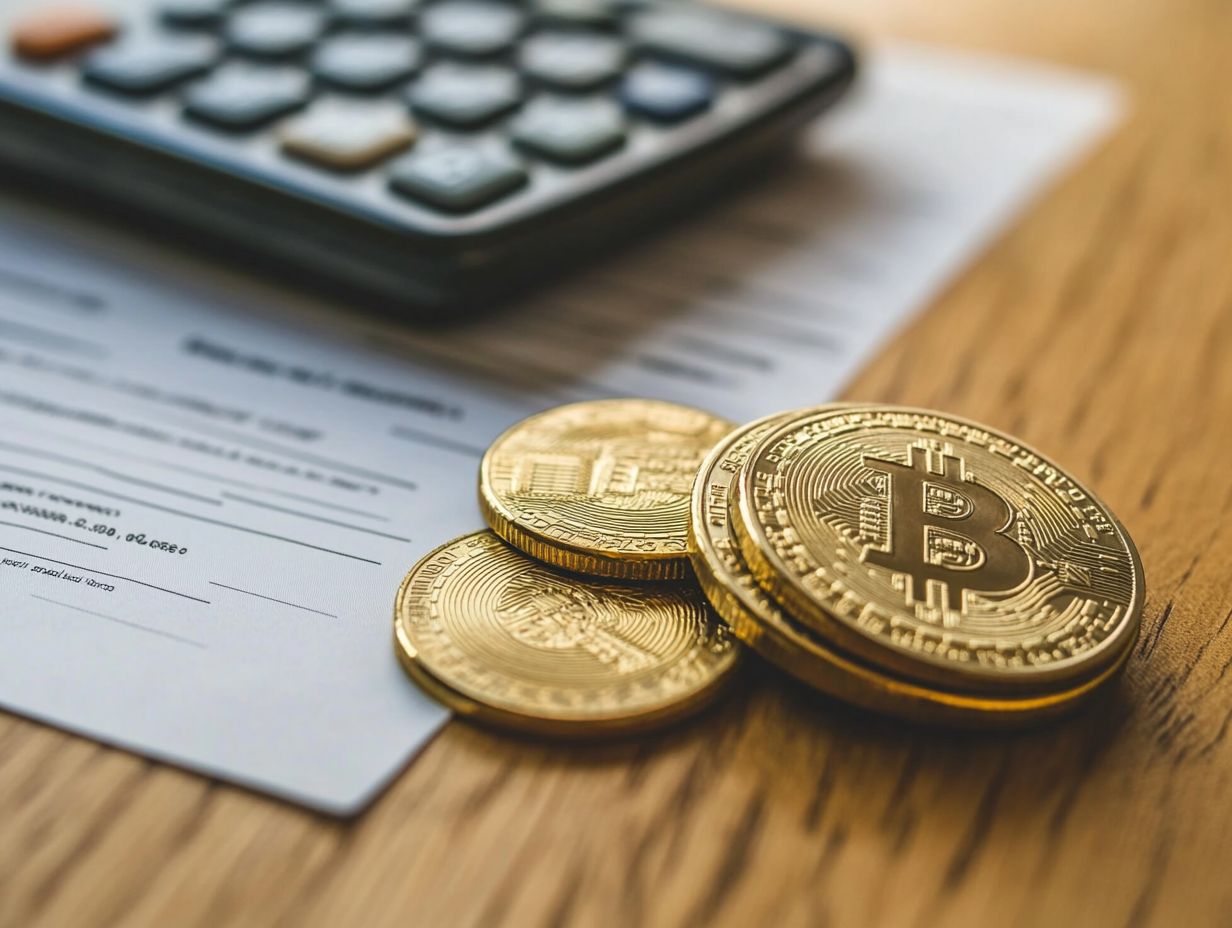
What are the tax implications of donating precious metals to charity?
Donating precious metals to charity can have various tax implications depending on the type of metal and how it is donated. Generally, if the metal is a capital asset and has appreciated in value, you may claim a charitable deduction for its full fair market value. However, if the metal is classified as ordinary income, only the cost basis can be deducted.
Are there any limits to the tax deduction for donating precious metals to charity?
Yes, there are limitations on tax deductions for donating precious metals. Typically, the deduction is capped at 30% of your adjusted gross income for the tax year. This limit may be lower if the charity is a private foundation or if the metal is classified as ordinary income.
Can I donate precious metals directly to a charity or do I need to go through a broker?
In most cases, you can donate precious metals directly to a charity without needing a broker. However, it’s crucial to check with the charity beforehand to ensure they accept such donations and can handle the transaction.
Are there any tax reporting requirements for donating precious metals to charity?
Yes, there are specific tax reporting requirements for donating precious metals. Donors must obtain a written acknowledgment from the charity for any donation over $250. If the donation is valued above $5,000, a qualified appraisal is required, along with a special form to attach to your tax return.
What happens if the charity sells the precious metals I donated?
If the charity sells the precious metals within three years of receiving the donation, you may need to reduce your deduction by the amount of any income the charity received from the sale. However, if the charity utilizes the metals for their tax-exempt purpose, there s no need to reduce your deduction.
Can I donate precious metals from my IRA to charity tax-free?
Yes! If you are at least 70 years old, you can donate precious metals from your IRA to charity tax-free. This is known as a Qualified Charitable Distribution (QCD). It allows you to meet your required minimum distribution (RMD) while also making a tax-free donation to charity.










